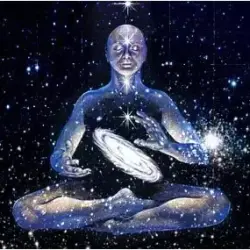Now Featured at the Patheos Book Club
Death At The Movies
Hollywood's Guide to the Hereafter
By Lyn and Tom Davis Genelli
Excerpt from Chapter 17: Our Next-to-All-Time Favorite: Casablanca
Casablanca (1942), one of the most enduringly popular movies ever made in Hollywood,is beloved by generation after generation for its romanticism, stirring patriotism, spirit of transcendence, and unforgettable lines, even the often-misquoted "Play it, Sam." Like so many transit films, it contains more than the sum of its talented writers, actors, and technicians. It has a life and a power that achieves its own state of transcendence through its recognition of a deeply held inner truth—the truth of freedom—and exquisitely transmits the spirit of that freedom. A large number of the cast and crew, including those playing Nazis, were in fact German Jews who had escaped from Hitler's Germany. Conrad Veidt, ironically the movie's villain, had narrowly escaped an SS death squad sent after him for his anti-Nazi activities. Other notable refugees in the film are Peter Lorre and S. K. Sakall. The supporting cast also brought to a dozen small roles an understanding and a desperation that could never have come from central casting—it is said that during filming of the famous scene in Rick's café when "La Marseillaise" is sung over the German song "Die Wacht Am Rhein" many of the actors had real tears in their eyes, overcome by the emotions the scene brought out. Given the times and those involved, Casablanca was a keenly focused expression of the deepest feelings of literally millions of displaced and war-ravaged individuals.
For us, Casablanca's place in the pantheon of transit films is unmistakable. Consider: Right from the beginning we are told about the tortuous trail of resisters and refugees from Paris to Marseilles to Oran and across the rim of Africa to French Morocco and Casablanca, from where they hope they can eventually move on to a new life, perhaps even in America, the land of the free. But, meanwhile, in Casablanca they "wait and wait and wait." Casablanca is in a sense removed from the war in Europe, yet it is influenced by the presence of occupying Nazis and their Vichy minions. It has become a place of transit, between lives left behind and lives hoped for in the future, lived somewhere else, somewhere better. Almost none of the refugees want to stay in Casablanca. What they want is to get out and move on safely to their new lives.
Like the transit realm itself, Casablanca seems arbitrary, dangerous, and confusing. We see the local police arresting a man about whom we know nothing except that "his papers expired three weeks ago." The man flees, and they shoot him. Uniformed Nazis, the hell beings of this realm, roam the city at will, commanded by a wrathful demon, Major Strasser (Conrad Veidt). No one is above suspicion, especially the "usual suspects" rounded up regularly by the French chief of police, Captain Louis Renault (Claude Rains), in some antic attempt to convince the German authorities that something is actually being done to curb the flow of illegal immigrants through the city. What everyone wants are "letters of transit," which "cannot be questioned." These allow safe and certain passage through the multiple risks of transit. Don't we all want these—papers, documents or dogmas, sacraments or karmic merit—whatever will help us navigate our passage though the underworld and out the other side into a new birth in some heavenly realm, someplace pleasant like, say, Hollywood? And don't we all fear that our credentials will be exposed as inadequate, fake, or expired and that we will fall into the hands of the demonic, be cruelly punished, and reborn in, say, Mogadishu?
The dark prince of this transit realm is Rick (Humphrey Bogart), proprietor of the popular Café Américain. Rick has left America, the place everyone else wants to get to. It is never clear why he left, only that he cannot return. In this regard, he is a transit denizen like everyone else, except that he doesn't aspire to leave Casablanca. Rick used to be a good and honorable man; he had run guns into Ethiopia and fought with the Loyalists in Spain. He had worked and risked his life for values greater than his own self-interest. But now he is disillusioned, defending himself against lost hope with near-impregnable cynicism. He has convinced himself that nothing matters, that "I don't stick my nose out for anybody," that "I'm the only cause I'm interested in." Those around him, interestingly enough, are not taken in by Rick's attitude of cynicism. They continue to see him as a good man and know his cynicism is like the Rio Grande—a mile wide and an inch deep. We see immediately the wounded hero, played by an actor who embodied that archetype like no other—Bogie. And we sense at once that his wound is a wound of love.




